'I did not write it to titillate a reader': Authors of books banned in Iowa speak out
- Oops!Something went wrong.Please try again later.
Part of an occasional series
Authors of books that are banned in Iowa schools for having descriptions of sex acts say labeling their works as pornography diminishes their artistic and educational value.
They told the Des Moines Register that blocking access to their work takes away tools that could help students make a positive impact and articulate their identities that may not match those of other students. The books were removed this year after Senate File 496, signed into law by Gov. Kim Reynolds in May, banned from school libraries books with descriptions or depictions of sex acts. The new law also prohibits instruction on gender and sexual identity until seventh grade.
Maia Kobabe is the author and illustrator of the coming-of-age memoir "Gender Queer," which follows the author's journey exploring gender identity and sexuality, culminating with Kobabe identifying outside of the gender binary. The book and its sexual images have been front and center in debates about what's appropriate in schools.
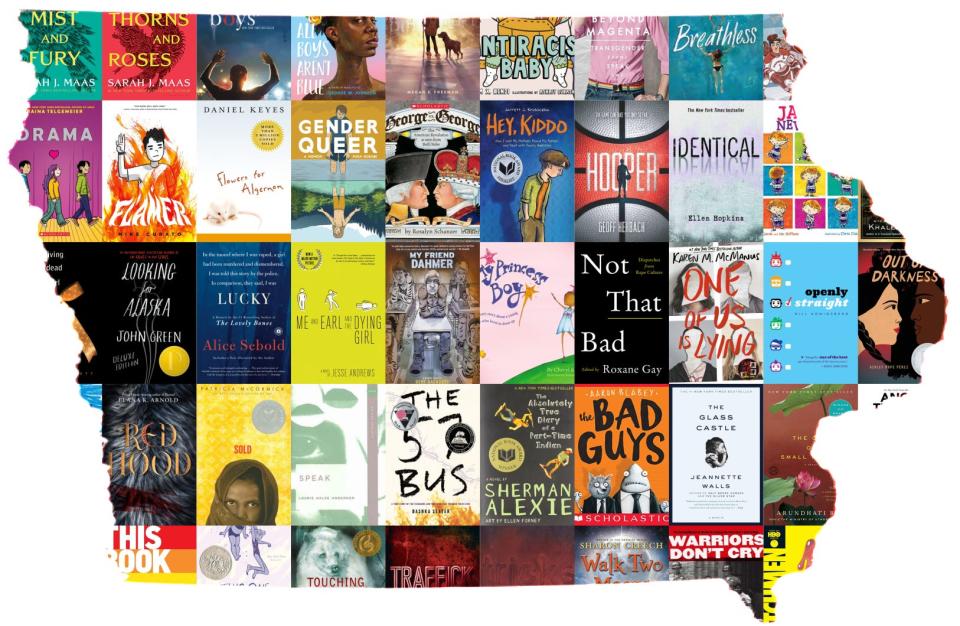
The debate over "Gender Queer" has gotten so intense that some parents in late 2021 sought a law enforcement investigation against a Des Moines metro school district over the book, accusing the district of giving pornography to children. Four people wrote a letter in December 2021 to then-Polk County Attorney John Sarcone, asking his office to investigate the West Des Moines Community School District for allegedly violating a state law that bars giving obscene material to minors. "The written descriptions and images in these books are blatant … such that immediate action should be taken," according to the letter.
That was before the state passed the new law, which has resulted in at least three school districts in Iowa pulling "Gender Queer" from their shelves.
More: ACLU of Iowa, Lambda Legal sue to block Iowa law that bans LGBTQ teaching, explicit books
The authors of books banned and challenged in Iowa's schools rebuff accusations about their works and worry about the impact removing them could have on readers.
"When I couldn't yet figure out who I was, it felt important to answer that question before I could start answering other questions about my life," Kobabe said of writing "Gender Queer."
"I did not write it to arouse a reader. I did not write it to titillate a reader. I wrote it to educate and explain," Kobabe said.
Patricia McCormick is the author of "Sold," which is about the experiences of a teenage girl in Nepal who was sold into sex slavery. She said kids who've read the book and had similar experiences have come forward about what's happening in their lives and found support. And she's also seen students, "when they understand about trafficking of their peers halfway around the world, they raise money, they do all kinds of community service."
"Gender Queer" had been removed in four districts as a result of parent challenges before Senate File 496 passed, in addition to the three districts that removed it under the new law. Meanwhile, McCormick's "Sold" has been pulled from shelves in more than a dozen Iowa school districts due to the new law.
More than 540 book titles have been removed in Iowa's school districts as of mid-November, according to data the Register has gathered via public records requests. Titles include memoirs, young adult books, classic novels, works of nonfiction and children's books with LGBTQ themes.
Meanwhile, four bestselling authors say the new law is a violation of the First and 14th amendments and filed a lawsuit against the state Thursday. Laurie Halse Anderson, John Green, Malinda Lo and Jodi Picoult filed the suit with Iowa's largest teachers union, the Iowa State Education Association, and the largest publisher in America, Penguin Random House. The First Amendment guarantees rights including free speech, press and assembly, and the 14th Amendment guarantees equal protection under the law.
It was the second lawsuit filed within days over the new law. The American Civil Liberties Union and Lambda Legal filed suit on Tuesday on behalf of eight Iowa students and their families, as well as Iowa Safe Schools, a nonprofit that advocates for LGBTQ students.
Loading...
Iowa governor calls 'All Boys Aren't Blue' 'nasty, pornographic'
Despite the authors' reactions, Republicans behind the new law stand by their interpretations of the books' content. When asked at an October new conference about some school districts also removing classic books to comply with the law, Reynolds pushed back and said the law is "very clear."
She pointed to "All Boys Aren't Blue" by George M. Johnson, which details the author's experiences growing up as a queer Black person. It explores consent while depicting sexual scenes, including a sexual assault involving oral sex by a teenage male cousin against the then-13-year-old Johnson.
"We are way off course," Reynolds said. "Our kids and our teachers deserve better. They deserve the tools to help these kids succeed, not a damn distraction on a nasty, pornographic book that should never, ever be in a classroom."
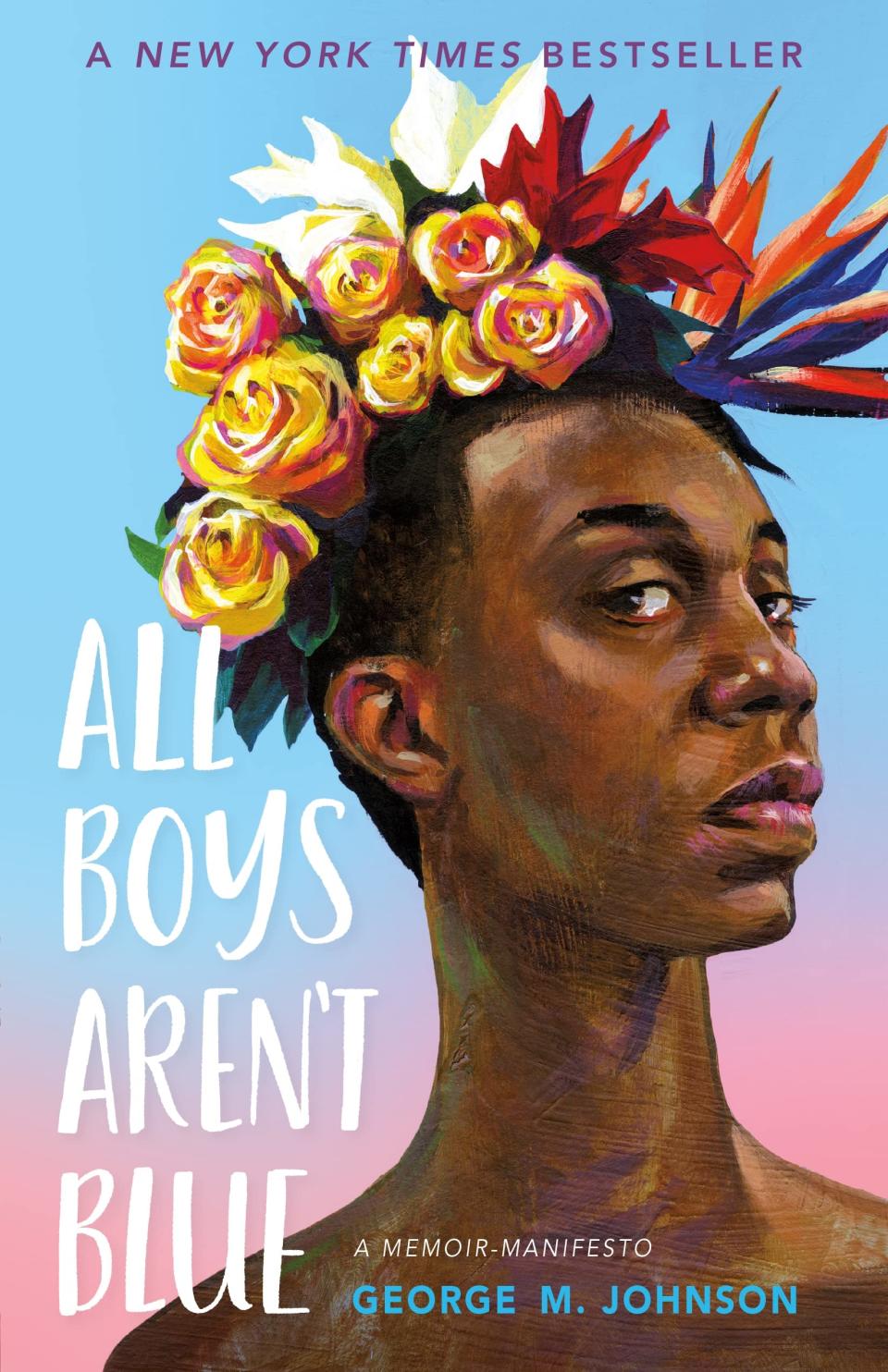
The book has been removed from at least six districts under Senate File 496, including in Norwalk, Urbandale and West Des Moines.
Senate File 496 took effect July 1, and potential penalties for educators who continue to provide access to the books go into effect Jan. 1, 2024. School districts have navigated the law without official state guidance, though the Iowa Board of Education released proposed rules Nov. 15. A public hearing process on the rules will continue through early January.
Other Republican politicians have accused school districts of taking their interpretations too far — including those that have removed classic novels like the dystopian books "1984" and "Brave New World."
More: Which banned books have been removed from Iowa schools? Our updated database lists them
Authors say it's inaccurate to describe their work as pornographic
"Gender Queer" is one of the most challenged books in Iowa and across the country. Proponents of removing the book in the Des Moines metro and nationally have objected to the book's depictions of sexual activity, masturbation and sexual fantasy, calling the book pornographic.
Opponents of removing the book say pieces of it have been taken out of context in the drive to remove a book that has artistic merit and could open eyes to LGBTQ stories and reflect students' experiences.
Kobabe — who uses e/em/eir pronouns, which also are known as Spivak pronouns — said e was consumed with questions about eir identity, gender and sexuality through eir teens and early 20s, and it became difficult to focus on other major questions like a future career or relationships.
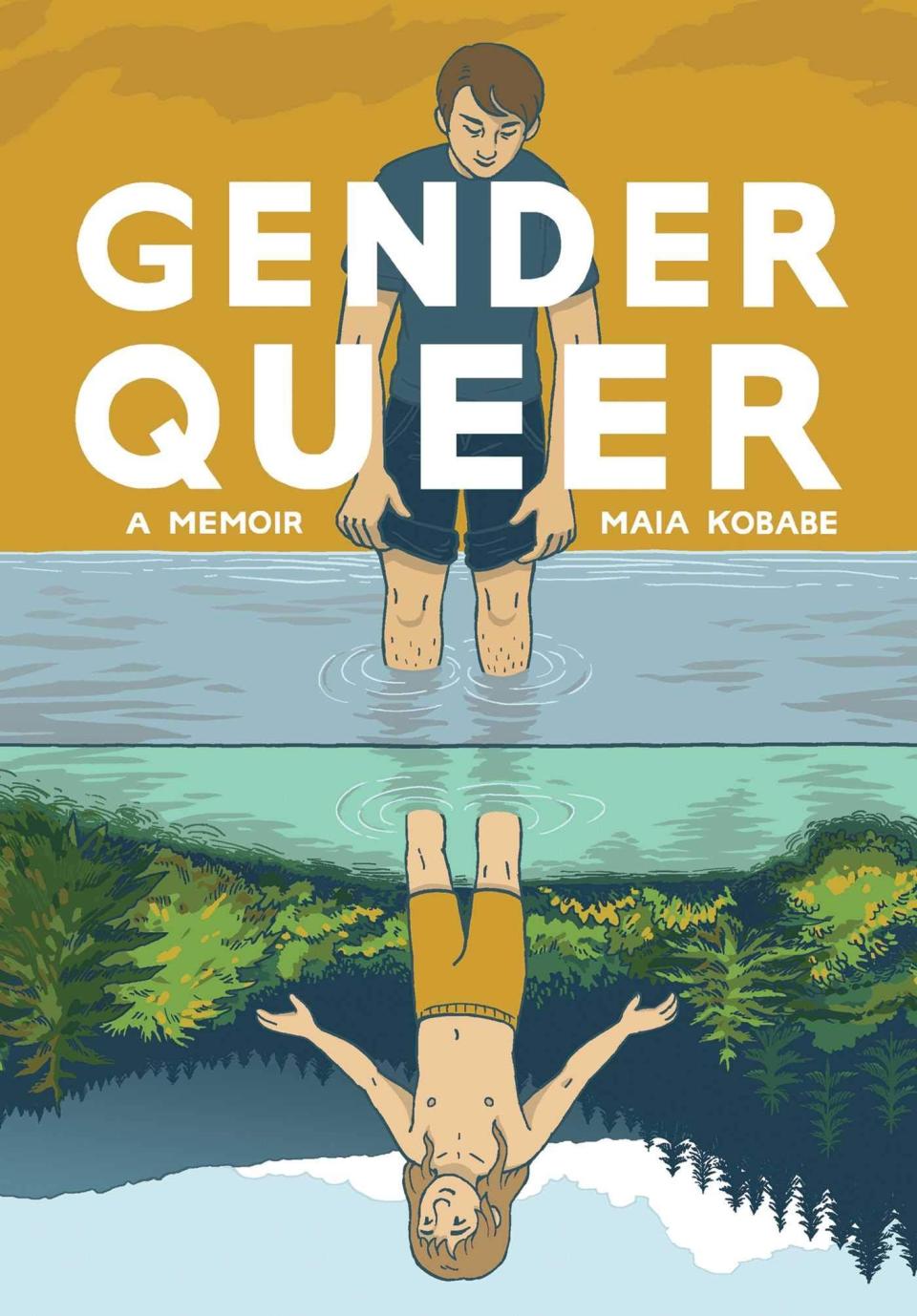
Books like "Gender Queer" could help other readers answer that big question of "Who am I?," Kobabe said.
"I think a lot of people feel like they need to articulate their identity, whether that has to do with something like disability, race, immigration status, gender, sexuality or a complex web of multiple of those types of factors," e said.
Kobabe said "Gender Queer" is "definitely and always has been for older teens and young adults," and it's important for libraries to have diversity of texts for different types of readers.
"I included only as much talking about sex and sexuality as I thought I needed to get my larger point across about how questions of who you are can be very confusing," e said.
More: Books challenged in Iowa schools frequently tell stories of LGBTQ, Black and brown people
McCormick said it’s upsetting that people describe passages in "Sold" that depict the rape of a child as pornography. She credits parents, librarians, teachers and students for being able to tell the difference between a nonconsensual sexual experience and pornography.
She said she also worked “very hard to use language that wasn't graphic and wasn't explicit or offensive, in part because if you're 13 years old and this is your first sexual experience, you're not going to use graphic language.”
Authors describe the impacts of their books and fear what's lost with book bans
Queer people, Kobabe said, often don't have role models in their own families to look up to when exploring their identities, so they look to outside media to help find answers.
E said emotionally charged words like "pornography" get thrown around at queer authors and works because they get a reaction. But books often are the safest place for young readers to first encounter challenging topics, Kobabe said.
McCormick said "Sold" contains valuable information about human trafficking, including what it really looks like compared to popular perceptions and depictions of who's most likely to be a victim. Besides prompting students suffering from abuse at home to come forward and get help, students have been moved to help rescue organizations around the world, she said.
With the book being pulled from school shelves, she said, "that money that kids have raised is also not going to get to the families and the kids and the rescue organizations that can really make good use of it.”
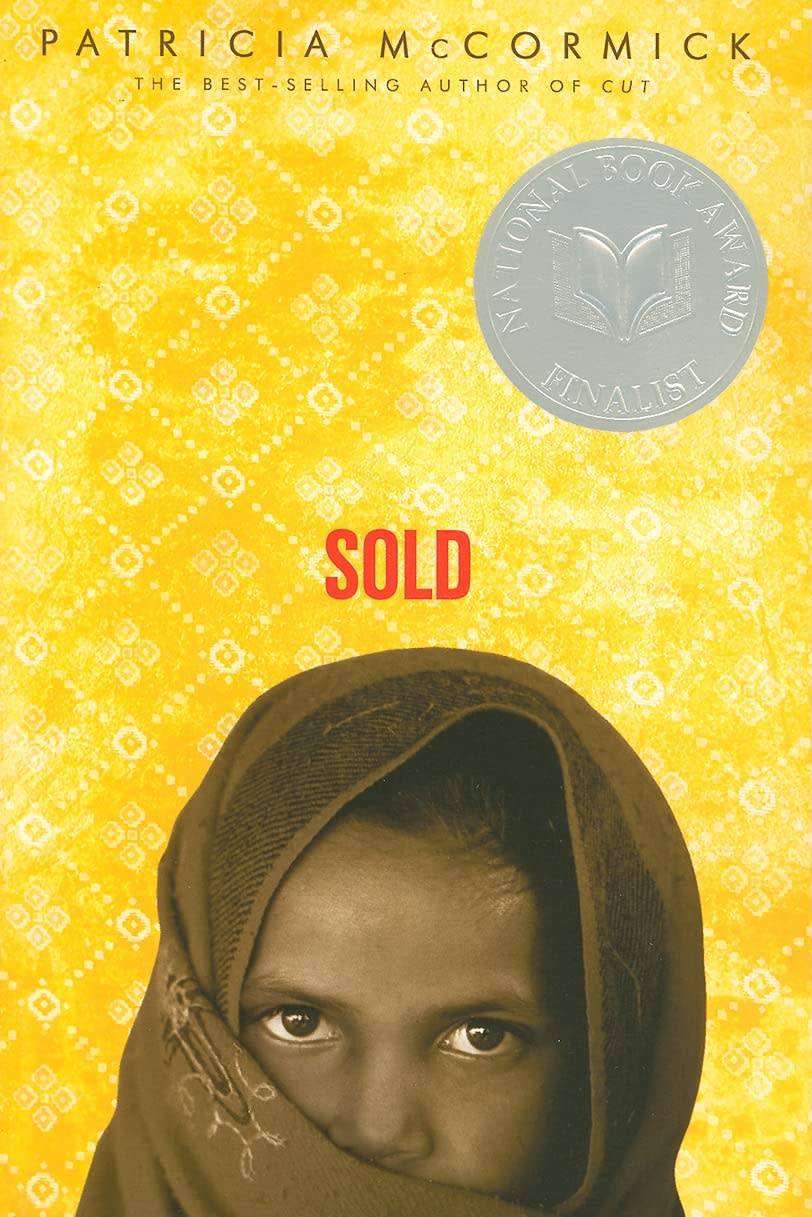
“And I think you know, it's easy to say, ‘Oh, it's just fundraising money.’ But if you're in a really perilous situation in a third-world country and you understand that somebody from somewhere around the world, some kids in America, or somebody, somewhere, provided money to help you, you just feel seen, you don't feel so alone," McCormick said.
Banning the book “cuts off avenues for help and it cuts off avenues for altruism," she said.
More: What to know about the 9 most challenged books in Iowa schools, from 'Tricks' to 'Lawn Boy'
Khaled Hosseini's "The Kite Runner" has been pulled from shelves in more than a dozen Iowa school districts.
The novel is a story of family and friendship set against the history of Afghanistan from just before the 1979 Soviet Union invasion through the rise of the Taliban. It includes a scene where a main character is sexually assaulted, defining the course of the rest of the story.
Hosseini expressed interest in speaking with the Register but ultimately did not schedule an interview through a publishing agent. However, he posted Oct. 3 on X in celebration of 20 years since the book's publication: “The Kite Runner is deeply special to me. It changed my life, but more importantly, it helped readers of all races and cultures develop a richer, more nuanced understanding of Afghan life. That is my lasting reward.”
He provided a statement in 2022 to The Ledger in Lakeland, Florida, after a conservative group there pushed for "The Kite Runner" and other books to be banned from schools: "High school students are far more sophisticated thinkers than these parent groups give them credit for. We should be encouraging our students to take the opportunity to grow and develop empathy for others, instead of imposing our own biases and insecurities on them. Banning books like 'The Kite Runner' is a tragic, misguided disservice to students, and I applaud all those fighting for the freedom to read and learn.”
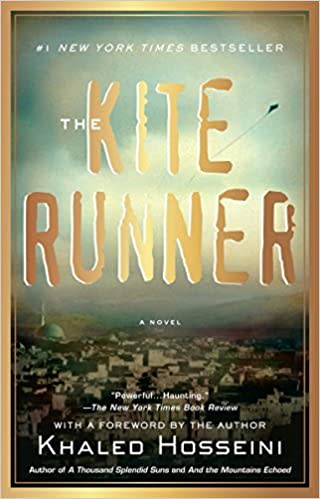
A book that had originally been on a list of hundreds of potentially banned books in the Urbandale Community School District included "Mayor Pete: The Story of Pete Buttigieg," a children's biography about Pete Buttigieg, the former mayor of South Bend, Indiana, and the first openly gay man to reach the top-tier of candidates in a major party’s nominating process. Buttigieg is now the secretary of transportation under President Joe Biden.
After public outcry, Urbandale later whittled the list to a few dozen entries, no longer flagging books for removal on the basis of LGBTQ themes.
Buttigieg said priorities of building and repairing infrastructure and improving Americans' lives in other ways "could not be more distant from the misplaced focus of officials who concentrate on using their power to make life harder for already vulnerable people, or even to ban titles ranging from 'The Catcher in the Rye' to a book about a presidential campaign."
To date, the Register has not learned of "The Catcher in the Rye" being challenged or removed from an Iowa school since August 2020, though it was originally on Urbandale's list of books to be removed before it was taken off in a revised version of the list.
Editor's note: This story has been updated to correct that Pete Buttigieg was not the first openly gay man to run for a major party’s presidential nomination. Fred Karger ran as a Republican in 2012.
Phillip Sitter focuses for the Des Moines Register on reporting on suburban growth and development in western metro areas. Phillip can be reached via email at psitter@gannett.com. He is on X, formerly known as Twitter, at @pslifeisabeauty.
Chris Higgins covers eastern suburbs for the Register. Reach him at chiggins@registermedia.com or 515-423-5146 and follow him on Twitter @chris_higgins_.
This article originally appeared on Des Moines Register: 'Gender Queer,' 'Sold' banned in Iowa's schools. What the authors say:

